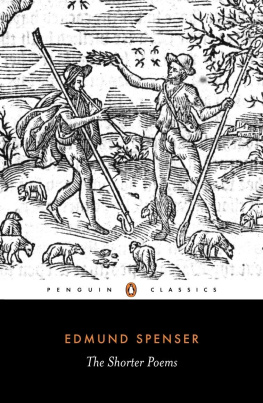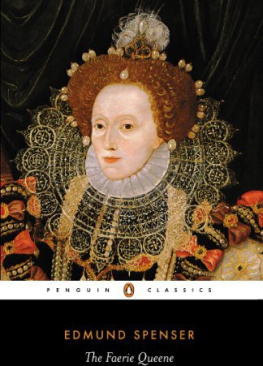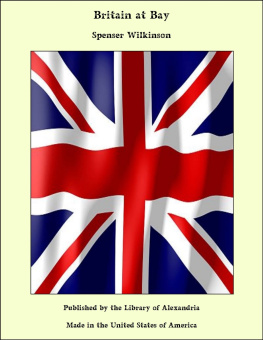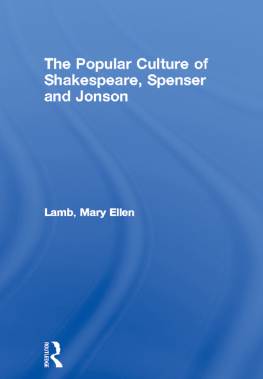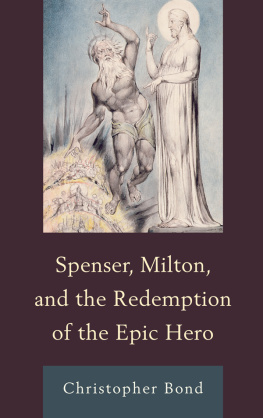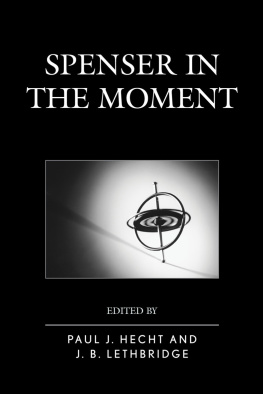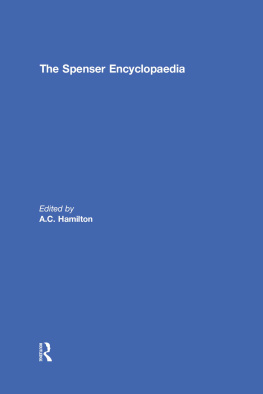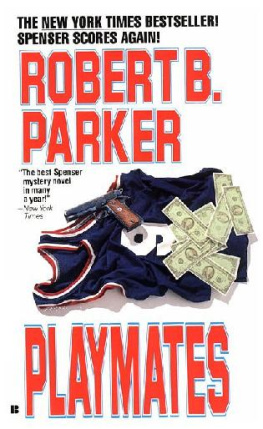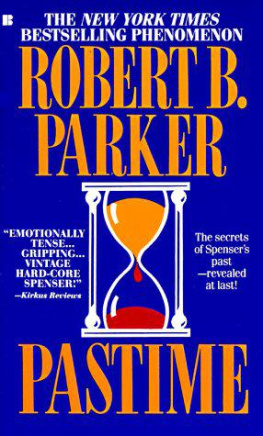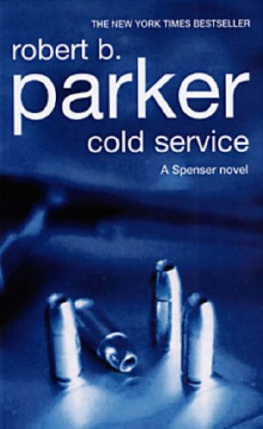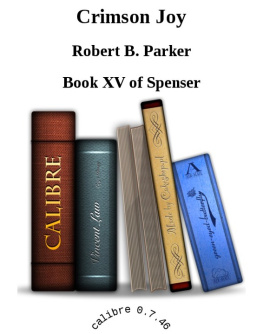Edmund Spenser - The Shorter Poems
Here you can read online Edmund Spenser - The Shorter Poems full text of the book (entire story) in english for free. Download pdf and epub, get meaning, cover and reviews about this ebook. year: 2006, publisher: Penguin UK, genre: Detective and thriller. Description of the work, (preface) as well as reviews are available. Best literature library LitArk.com created for fans of good reading and offers a wide selection of genres:
Romance novel
Science fiction
Adventure
Detective
Science
History
Home and family
Prose
Art
Politics
Computer
Non-fiction
Religion
Business
Children
Humor
Choose a favorite category and find really read worthwhile books. Enjoy immersion in the world of imagination, feel the emotions of the characters or learn something new for yourself, make an fascinating discovery.
- Book:The Shorter Poems
- Author:
- Publisher:Penguin UK
- Genre:
- Year:2006
- Rating:5 / 5
- Favourites:Add to favourites
- Your mark:
- 100
- 1
- 2
- 3
- 4
- 5
The Shorter Poems: summary, description and annotation
We offer to read an annotation, description, summary or preface (depends on what the author of the book "The Shorter Poems" wrote himself). If you haven't found the necessary information about the book — write in the comments, we will try to find it.
The Shorter Poems — read online for free the complete book (whole text) full work
Below is the text of the book, divided by pages. System saving the place of the last page read, allows you to conveniently read the book "The Shorter Poems" online for free, without having to search again every time where you left off. Put a bookmark, and you can go to the page where you finished reading at any time.
Font size:
Interval:
Bookmark:

PENGUIN ENGLISH POETS
GENERAL EDITOR : CHRISTOPHER RICKS
EDMUND SPENSER: THE SHORTER POEMS
EDMUND SPENSER was born in London, probably in 1552, and was educated at the Merchant Taylors School, from which he proceeded to Pembroke College, Cambridge. There he met Gabriel Harvey, scholar and University Orator, who exerted a considerable influence on his first important poem, The Shepheardes Calender (1579) and with whom he collaborated on a volume of familiar letters (1580). He graduated BA in 1573 and proceeded MA in 1576. By 1578 he was employed as secretary to John Young, Bishop of Rochester, formerly Master of Pembroke College. He may have also served briefly in the household of Robert Dudley, Earl of Leicester, where it is commonly assumed that he met the Earls nephew, Sir Philip Sidney, to whom The Shepheardes Calender is dedicated. In 1580 he went to Ireland as Secretary to Lord Grey de Wilton, Lord Deputy of Ireland, and stayed there for much of the remainder of his life, eventually becoming an undertaker in the Plantation of Munster. While at Kilcolman, his estate in County Cork, he met or reacquainted himself with his neighbour, Sir Walter Ralegh, with whom he travelled to London in 1589 to present the first three books of The Faerie Queene (1590) to its dedicatee, Queen Elizabeth, who rewarded him with an annual pension of fifty pounds. 1591 saw the publication of Complaints and Daphnada, the former exciting political controversy owing to the criticism of Lord Burghley contained in Mother Hubberds Tale. Spensers marriage to Elizabeth Boyle was celebrated in his Amoretti and Epithalamion (1595), and his pastoral eclogue, Colin Clovts Come Home Againe, appeared in the same year. In 1596 he brought out the second three books of The Faerie Queene as well as his Fowre Hymnes and Prothalamion. In 1598 his estate was burned during the Tyrone rebellion, and he fled to Cork and thence to London, where he died in 1599. He was buried in Westminster Abbey and posthumously celebrated as the Prince of Poets. In 1609 a folio edition of The Faerie Queene appeared, including the previously unpublished Mutabilitie Cantos, followed, in 1611, by a folio edition of the complete poetical works. A View of the Present State of Ireland, written in 1596, was published by Sir James Ware in 1633.
RICHARD A . M c CABE is a Fellow of Merton College and Reader in English at Oxford University. He was formerly Drapers Research Fellow at Pembroke College, Cambridge and a Fellow of Trinity College Dublin. His publications include, Joseph Hall: A Study in Satire and Meditation (1982), The Pillars of Eternity: Time and Providence in The Faerie Queene (1989), Incest, Drama and Natures Law (1993) and Presenting Poetry: Composition, Publication, Reception (1995), co-edited with Howard Erskine-Hill.
EDMUND SPENSER
Edited by RICHARD A . M c CABE
PENGUIN BOOKS
PENGUIN BOOKS
Published by the Penguin Group
Penguin Books Ltd, 80 Strand, London, WC2R 0RL, England
Penguin Putnam Inc., 375 Hudson Street, New York, New York 10014, USA
Penguin Books Australia Ltd, Ringwood, Victoria, Australia
Penguin Books Canada Ltd, 10 Alcorn Avenue, Toronto, Ontario, Canada M4V 3B2
Penguin Books (NZ) Ltd, Private Bag 102902, NSMC, Auckland, New Zealand
Penguin Books Ltd, Registered Offices: 80 Strand, London, WC2R 0RL, England
Published in Penguin Books 1999
Editorial material copyright Richard A. McCabe, 1999
All rights reserved
The moral right of the editor has been asserted
Except in the United States of America, this book is sold subject to the condition that it shall not, by way of trade or otherwise, be lent, re-sold, hired out, or otherwise circulated without the publishers prior consent in any form of binding or cover other than that in which it is published and without a similar condition including this condition being imposed on the subsequent purchaser
ISBN: 9781101492093
All of the illustrations are by courtesy of the Bodleian Library with the exception of those from Daphnada and Amoretti and Epithalamion which are reproduced by permission of the British Library. Details of the editions used are supplied in the Textual Apparatus.
1547 | Death of Henry VIII. Accession of Edward VI. |
1552? | Birth of Spenser in London (but the date is uncertain and may be as late as 1554). |
1553 | Death of Edward VI. Accession of Mary Tudor. |
1554 | Birth of Sir Philip Sidney. Mary weds the future Philip II of Spain. |
1556 | Accession of Philip II to the Spanish throne. |
1558 | Death of Mary Tudor. Accession of Elizabeth I. |
15619 | Spenser attends the Merchant Taylors School under Richard Mulcaster. |
1564 | Birth of Shakespeare and Marlowe. |
1566 | Birth of James VI of Scotland. |
1567 | Revolt of the Low Countries. |
1568 | Mary Queen of Scots flies to England. |
1569 | Publication of A Theatre for Worldlings with translations by Spenser. Spenser matriculates at Pembroke Hall, Cambridge. |
1570 | Excommunication of Elizabeth I. |
1572 | Massacre of St Bartholomews Day in France. |
1573 | Spenser graduates BA. |
1576 | Spenser proceeds MA. |
1578 | Spenser acts as secretary to John Young, Bishop of Rochester. |
1579 | Publication of The Shepheardes Calender. Spenser is believed to have wed his first wife, Maccabaeus Chylde on 27 October. Outbreak of the Desmond Rebellion in Munster. |
1580 | Publication of the SpenserHarvey Letters. Spenser travels to Ireland as secretary to Lord Arthur Grey, the newly appointed Lord Deputy. Massacre of foreign mercenaries at Smerwick. |
1581 | Publication of the second quarto of The Shepheardes Calender. Famine in Munster. |
1582 | Lord Grey is recalled to England. |
1583 | Death of the Earl of Desmond. |
1585 | The Earl of Leicester campaigns in the Low Countries. |
1586 | Publication of the third quarto of The Shepheardes Calender. Death of Sir Philip Sidney at Zutphen. |
1587 | Execution of Mary Queen of Scots. |
1588 | Defeat of the Spanish Armada. Death of the Earl of Leicester. |
1589 | Spenser travels to England with Sir Walter Ralegh in October. Accession of Henry IV of France. |
1590 | Publication of The Faerie Queene, IIII. Spenser receives the royal grant of his estate at Kilcolman. |
1591 | Publication of Complaints, Daphnada and the fourth quarto of The Shepheardes Calender |
Font size:
Interval:
Bookmark:
Similar books «The Shorter Poems»
Look at similar books to The Shorter Poems. We have selected literature similar in name and meaning in the hope of providing readers with more options to find new, interesting, not yet read works.
Discussion, reviews of the book The Shorter Poems and just readers' own opinions. Leave your comments, write what you think about the work, its meaning or the main characters. Specify what exactly you liked and what you didn't like, and why you think so.

